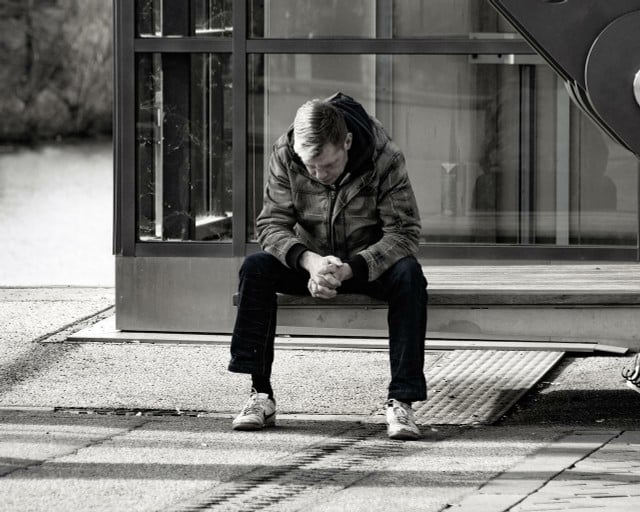
Being stuck in a toxic friendship can be very distressing. Here you will learn how to recognize toxic friendships and get tips on how to deal with friends who are not good for you.
The occasional argument or disagreement is part of a healthy friendship. But there are also toxic friendships. Toxic doesn’t just mean poisonous: the English word “TOXIC” is also an acronym made up of the following terms: “Tiring” (tiring), “obstructive” (obstructive), “eXhausting” (exhaustive), “intimidating”. (intimidating) and conditional. These terms describe the characteristics of a toxic friendship.
Instead of triggering positive feelings, relationships with toxic friends rob you of strength and energy. After spending time with your girlfriend or boyfriend, you may feel down or your self-esteem may suffer. This is anything but a good sign. According to a 2021 study, there is a positive association between friendly support and mental and physical well-being. In a toxic friendship, the opposite is often the case.
But remember: Friendships aren’t always black and white. Psychotherapist Felizitas Ambauen explains in an interview that in a toxic friendship it is not just one person who is “the toxic person” and the other person who is “the victim”. When a friendship is toxic, there are always two people involved. Often there isn’t just one factor that makes a friendship toxic, the process is more complicated. You can tell if you’re stuck in a toxic friendship with eight warning signs.
Toxic Friendship: 8 Traits

(Photo: CC0 / Pixabay / useche70)
Every friendship is different, even those that are toxic. And as already mentioned: There is not only one victim and one perpetrator in a toxic friendship. You may also recognize behavioral patterns that apply to you among these typical characteristics.
- A person gives more than they get: Toxic friendships are often one-sided. You are always there for your boyfriend or girlfriend. You comfort people who are heartbroken, pick them up from doctor’s appointments or help with moves. You hardly get anything in return. According to the Washington Post, very few friendships have an absolute balance in that regard. However, it should at least feel balanced.
- Everything revolves around your boyfriend or girlfriend: Toxic friends crave attention and would like to be the center of attention all the time. They expect you to be always available and interested in their life. Conversations usually remain one-sided because your friend always only talks about themselves or tries to redirect conversations to themselves. It looks like this, for example: “I’ve been in a similar situation before. At that time I…” Questions about your life and well-being are also the exception rather than the rule. The psychologist Susan Heitler also describes this typical dynamic.
- Jealousy: If you got a good grade, are successful at work or are happily in love, you are not allowed to do that in a toxic friendship. Your friend reacts with envy. Instead of rejoicing together, achievements are belittled in a toxic friendship. Instead of praise, there is often a “Yes, but…” – this gnaws at your self-confidence and it may be that you start to doubt yourself. Rivalry can also exist in a toxic friendship.
- One-sided apologies: If you don’t have time, are late, or do something wrong, you apologize to your boyfriend or girlfriend. In a toxic friendship, one-sided apologies remain. Nothing comes back from the other part and he or she does not see mistakes. Instead of apologies, you may even get accusations that you are actually to blame for the situation.
- Ruthlessness: Toxic friends do what they want. They often break promises or ignore messages and calls. It often doesn’t matter how you feel about it.
- Other people are more important: A toxic person will always care more about other people than you. For example, if you and your toxic friend meet other people at a party, you will be ignored. It can also happen that your friend prefers to spend time with other people – and makes that clear to you.
- Insults: A toxic person may offend you not only with verbal abuse, taunts, or nasty comments, but also with their behavior. For example, in the toxic relationship, she exposes you in front of other people, perhaps revealing your weaknesses or secrets.
- Manipulative Behavior: Toxic friends twist the truth in ways that suit them. They also do not shy away from lies and manipulation. The toxic person tries at all costs to get their way. People with toxic behaviors will always flip the truth so they can get where they are going and have their needs met. “People with toxic properties are masters of manipulation,” confirms American therapist Shannon Thomas.
Toxic Friendship: You can do this

(Photo: CC0 / Pixabay / chulmin1700)
If, after meeting and talking to a friend, you feel unwell for an extended period of time, that is the point at which you should take action. Because no matter how attached you are to your boyfriend or girlfriend, your well-being shouldn’t suffer permanently from the stresses of a toxic friendship. A scientific study from 2007, for example, shows how serious the health effects of such a friendship can be: The blood pressure of the study participants increased here just at the thought of friends with whom they had an ambivalent relationship.
Here’s what you can do if you’re stuck in a toxic friendship:
- Talk to Toxic Friends: Maybe your friend doesn’t realize how much he or she is hurting you. Or maybe you’ve noticed toxic behaviors in yourself. Maybe you could solve your problems in a constructive conversation. Try to stay factual and not get too emotional. If you are nervous before the interview, it can help you to write down a few keywords in advance. Don’t go into the conversation with unrealistic expectations: If the friendship has been toxic for a long time, it won’t be easy to patch it up.
- Set yourself apart: Take your space when everything is getting to be too much for you. Tell the other person that you need time for yourself and, for example, take a trip into nature to organize your thoughts.
- End a toxic friendship: Or maybe you’re so hurt that you don’t want anything to do with the toxic person anymore. Ending a friendship isn’t easy, toxic or not. After all, you’ve been through a lot together. However, if the friendship is no longer good for you and you are suffering from the relationship, it really is time to end the friendship. However, be respectful and try not to let yourself be manipulated. Here’s how to gracefully end a friendship.
- Seek Help: Don’t be afraid to seek help when a friendship is weighing you down. Talk to other friends or family about the toxic friendship. You can also seek psychological help to process the situation.
- Distraction: Meet up with other friends or start a new hobby. Maybe this way you can also meet new people who are a better match for you.
Read more on Techzle.com:
- Mental toughness: how to train it
- Toxic Positivity: When it’s too much of a good thing
- Environmental psychology: The psychology of the relationship between humans and nature
- Forgiving and Forgiving: Why It’s Good for You and Your Relationships